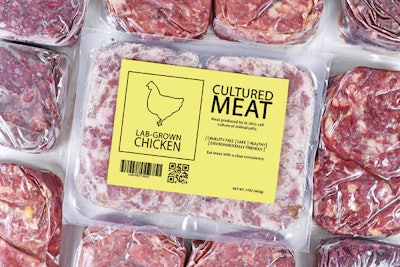
Alternative protein company Eat Just, Inc. has entered into a joint development agreement with ADM.
The company’s GOOD Meat division will be entering a partnership with nutrition company ADM to develop its cultivated meat production.
“ADM has been making and innovating in food over 120 years,” said Josh Tetrick, co-founder and CEO of Eat Just. “We are proud to partner with their incredibly talented team of scientists and engineers to take cultivated meat from a few restaurants today to millions of consumers tomorrow.”
Eat Just’s expertise is in producing alternative proteins by, for example, functionalizing plant proteins or culturing animal cells. Eat Just created JUST Egg which is an egg product made entirely from plants, and it was also the first company to launch meat made from animal cells into the market. This is ADM’s first foray into the cultivated meat sector which is predicted to become a $25 billion global industry by 2030, according to a company statement.
“ADM has long been a pioneer in the alternative protein industry, and our strategic focus right now is on developing innovative new technology and solutions to continue expanding our capabilities to serve the fast-growing global demand for protein-based nutritional needs,” said Leticia Gonçalves, ADM’s president, Global Foods. “Cultivated meat solutions have an exciting role to play in this space, and we are eager to work together with GOOD Meat to bring great-tasting, innovative cultivated meat products to the Singapore market and beyond.”
What is cultivated meat?
Cultivated meat, also known as cultured meat or lab-grown meat, is a form of cellular agriculture that produces meat using in vitro cell cultures of animal cells. The goal of cultivated meat is to minimize animal slaughter and reduce the environmental impact caused by cattle farming.

















